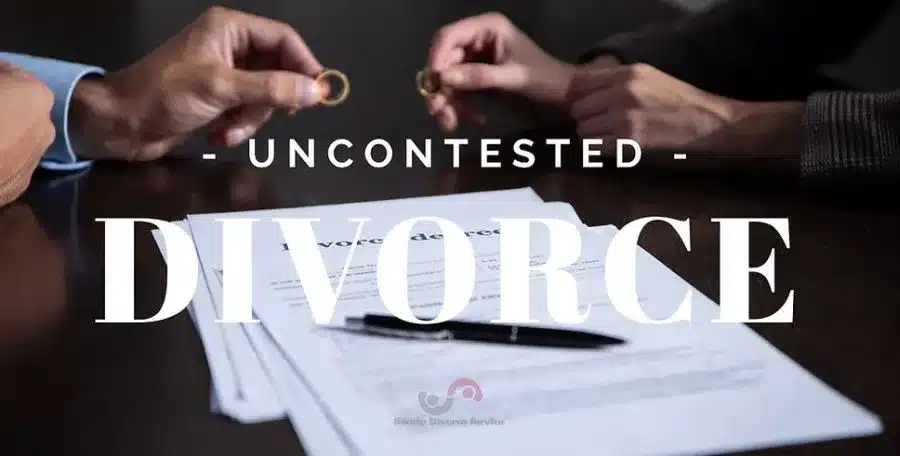In a divorce in Texas, property division involves separating the assets and debts acquired during the marriage. The process depends on whether the state follows community property or equitable distribution rules.
🔷 1. Community Property vs. Separate Property
Here’s how it works generally, with emphasis on Texas, a community property state:
✅ Community Property
This includes all assets and income acquired by either spouse during the marriage, regardless of whose name is on the title. Common examples:
- Wages and salaries
- Real estate bought during marriage
- Cars purchased with community income
- Retirement accounts (401k, IRA) earned during the marriage
- Business interests formed during the marriage
Texas law assumes all property is community property unless proven otherwise.
✅ Separate Property
Separate property is not divided in divorce. It belongs solely to the spouse who owns it. It includes:
- Assets owned before marriage
- Gifts received by one spouse (even if during the marriage)
- Inheritance received by one spouse
- Certain personal injury awards (excluding loss of earning capacity)
The burden of proof is on the spouse claiming something is separate property. Documentation is essential.
🔷 2. Valuation of Assets and Debts
📌 Why Valuation Matters
Before property can be divided, its current fair market value must be determined.
🔎 Valuation Process
- Real Estate: Appraised by a certified appraiser
- Vehicles: Valued via market guides like Kelley Blue Book
- Retirement Accounts: Valued using statements and actuarial experts
- Businesses: Valued by forensic accountants or business appraisers
- Personal Property: Furniture, jewelry, and electronics are valued based on resale value, not purchase price
💳 Debt Valuation
Debts like:
- Mortgages
- Credit card balances
- Car loans
- Student loans
…are also assessed and considered for equitable division.

🔷 3. How Property Is Divided in Texas
⚖️ “Just and Right” Standard
Texas does not automatically divide property 50/50. The court uses a “just and right” standard, which means it divides assets and debts equitably, based on fairness, not strict equality.
🧾 Factors Considered by Texas Courts
- Disparity in earning capacity or education
- Custody of minor children and who needs the marital home
- Fault in the breakup of the marriage (e.g., adultery, abuse)
- Health or age of the spouses
- Waste or fraud: One spouse spent recklessly or hid assets
- Separate property holdings: If one spouse has significantly more separate assets
🔷 4. Debt Division Details
Texas law treats debt the same way as assets:
- Community debts (incurred during the marriage for family benefit) are divided fairly
- Separate debts (incurred before the marriage or for one spouse’s personal benefit) usually stay with the spouse who incurred them
Even if one spouse is ordered to pay a debt, the creditor can still pursue both spouses if the debt was joint (e.g., both names on a loan).
🔷 5. Settlement Agreements (Preferred by Courts)
Couples can reach a Mutual Agreement on:
- Who gets which assets
- Who takes on which debts
- What to do with jointly owned homes or businesses
Benefits:
- More control over outcome
- Saves time and legal costs
- Less emotional stress
If a settlement is filed, a Texas judge will review and approve it if it’s fair, reasonable, and voluntary.
🔷 6. Special Issues in Property Division
🔍 Hidden or Undisclosed Assets
If a spouse tries to hide assets (e.g., offshore accounts, transferring property to relatives), Texas courts can:
- Reopen the case
- Award a larger share to the honest spouse
- Impose sanctions on the dishonest spouse
📃 Prenuptial and Postnuptial Agreements
If a valid prenup/postnup exists:
- It may override default community property laws
- Must be signed voluntarily and with full disclosure
🏡 Marital Residence
Options include:
- One spouse keeps the house (often the custodial parent)
- Sell and split proceeds
- Refinance into one spouse’s name
🔷 7. Enforcing Property Division Orders
Once the court issues a Final Decree of Divorce, it is legally binding. If a spouse fails to transfer property or pay debts:
- The court can enforce it through contempt proceedings
- The affected party can file a motion to enforce the decree
🔷 Summary Chart
| Property Type | Divided? | Based On | Notes |
| Community Property | Yes | “Just and right” standard | Not necessarily 50/50 |
| Separate Property | No | Ownership and documentation | Must be proven by clear evidence |
| Community Debt | Yes | Fairness & financial status | Includes shared loans and mortgages |
| Separate Debt | No | Who incurred it | Often stays with the original debtor |
📞 Get Started Today – Your Peaceful Divorce Is Just a Click Away
When you’re ready to move on, we’re ready to help.
📲 Call us now at (800) 432-0018
🖥️ Start your divorce online today





